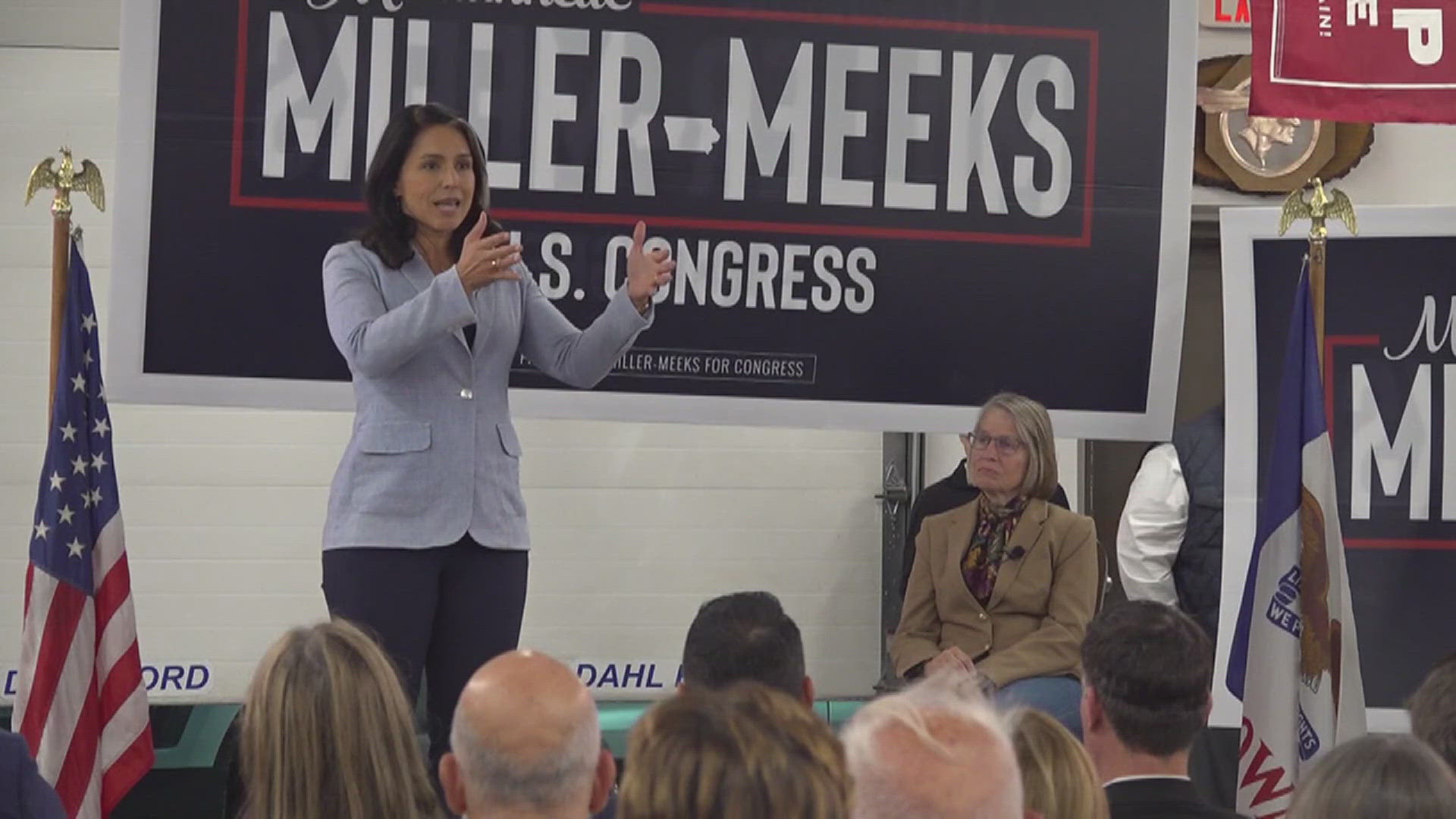DAVENPORT, Iowa — In a striking shift within American politics, former Democratic Congresswoman Tulsi Gabbard, now a Republican, joined forces with Republican Congresswoman Mariannette Miller-Meeks for a campaign event in Davenport on Friday, Oct. 25. As the 2024 national election draws closer, this trend of politicians crossing party lines is becoming increasingly evident.
At the event, Miller-Meeks emphasized the importance of genuine Republican representation.
"Don't vote for the fake Republicans, just vote for the real ones," Miller-Meeks said.
Gabbard, who announced her switch to the GOP just days ago, expressed her support for Miller-Meeks.
"What they say and accuse Donald Trump of doing is what they are actually doing," Gabbard said.
This phenomenon isn't limited to Gabbard. Former Illinois Republican Congressman Adam Kinzinger made headlines when he endorsed Vice President Kamala Harris at the Democratic National Convention in August, further blurring party lines. Even Robert F. Kennedy Jr., previously a candidate against Trump, has now aligned himself with the former president.
Political science professor Paul Baumgardner from Augustana College explained that such moves are often strategic.
"It's not uncommon in American politics for you to see a politician say 'I'm capable of reaching across the aisle, my opponent is not," Baumgardner said.
Baumgardner pointed out that many Republicans who leaned heavily red in past elections are now reconsidering their party affiliations, similar to Liz Cheney, who recently stumped for Harris.
In local elections, candidates in traditionally safe districts may align with the national ticket, but in more competitive areas like Iowa, candidates are distancing themselves.
"Even after the re-sorting, it's neck and neck," Baumgardner said.

